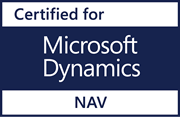3 Reasons to Consider Android™ for your Warehouse Handheld
Posted on April 23, 2019Authored by Barcom for Lanham Associates
The push to upgrade Windows® Embedded Handheld devices to Android is a hot topic right now in the mobile computing industry. There are many reasons why the popularity of Android in the warehouse has increased, and in this article, we’re highlighting three of those reasons:
1. End of life on Windows Handheld extended support will occur in 2020.
This, and previous versions of Windows Handheld, will be retiring and there will no longer be any updates, support or security patches for this operating system. Continuing to use a Windows Handheld mobile computer after the end date will result in your devices becoming vulnerable to hacks into your network and data.
If you’re currently on Windows 10 IoT then you’re already on the latest version Microsoft Mobile OS. But if you are still on version 6.5 or 7 (most folks avoided Windows 8), then you can upgrade to Windows 10 IoT but expect that it may be costly and time consuming to perform.
2. Only four percent of enterprise handheld computers come with Windows 10 IoT today, and major hardware developers have made Android their OS of choice.
Manufacturers like Honeywell have even gone so far as to pursue getting several of their devices validated by Google under the Android Enterprise Recommended program. This Google-led program is designed to make it easier for organizations to select, deploy and manage enterprise devices and services.
What’s more, developers of enterprise apps are moving to Android for ease of use and increasing popularity. Many large organizations (take Home Depot or Best Buy, for example) have migrated from Windows to Android so there’s validity in making the switch.
3. Android is user-friendly and offers greater flexibility.
Android is an open source operating system with an app store, a global network of developers, and any number of resources with sample code to make the migration process even simpler (and more cost-effective). On top of that, users are likely to already be familiar with the Android interface from their own mobile phone; increasing the comfort level and minimizing the time it takes to train employees.
Android is a secure, enterprise-grade operating system.
Industry manufacturers have made sizable investments to make sure their devices are Android compatible, which adds credibility to the decision to make the switch. Both Honeywell and Zebra offer a number of mobile computing devices that make integration easier so you can make the transition on your schedule, on your terms, without compromising flexibility or security.
Based on what we’re seeing out in the field, we’re also happy to report that the Android devices work well with Lanham’s ACE Warehousing solution.
Migrate now and save!
Migrating to Android obviously means you’ll need to invest in new hardware, and the manufacturers understand customer hesitation. That’s why they are offering trade-in promotions to make the process more palatable with an attractive rebate when you trade in any brand mobile device. Why not take advantage of the opportunity while it’s still available and save a few bucks in the meantime?
Want to learn more about migrating to Android? Contact us today for assistance, or reach out to our national hardware supplier, Barcom Inc.
* This post was developed for Lanham Associates by Barcom, Inc.

